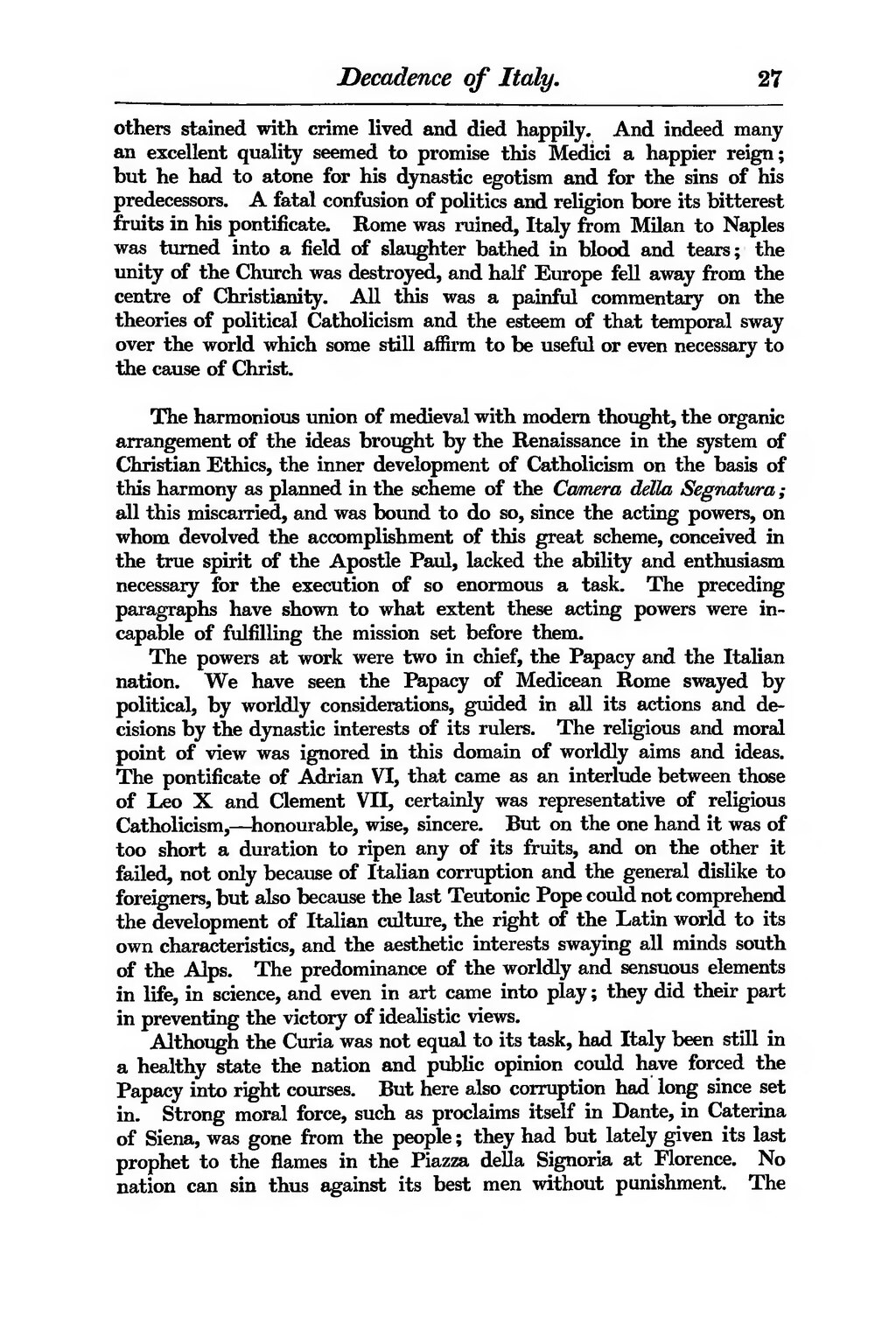others stained with crime lived and died happily. And indeed many an excellent quality seemed to promise this Medici a happier reign; but he had to atone for his dynastic egotism and for the sins of his predecessors. A fatal confusion of politics and religion bore its bitterest fruits in his pontificate. Rome was ruined, Italy from Milan to Naples was turned into a field of slaughter bathed in blood and tears; the unity of the Church was destroyed, and half Europe fell away from the centre of Christianity. All this was a painful commentary on the theories of political Catholicism and the esteem of that temporal sway over the world which some still affirm to be useful or even necessary to the cause of Christ.
The harmonious union of medieval with modern thought, the organic arrangement of the ideas brought by the Renaissance in the system of Christian Ethics, the inner development of Catholicism on the basis of this harmony as planned in the scheme of the Camera della Segnatura; all this miscarried, and was bound to do so, since the acting powers, on whom devolved the accomplishment of this great scheme, conceived in the true spirit of the Apostle Paul, lacked the ability and enthusiasm necessary for the execution of so enormous a task. The preceding paragraphs have shown to what extent these acting powers were incapable of fulfilling the mission set before them.
The powers at work were two in chief, the Papacy and the Italian nation. We have seen the Papacy of Medicean Rome swayed by political, by worldly considerations, guided in all its actions and decisions by the dynastic interests of its rulers. The religious and moral point of view was ignored in this domain of worldly aims and ideas. The pontificate of Adrian VI, that came as an interlude between those of Leo X and Clement VII, certainly was representative of religious Catholicism,—honourable, wise, sincere. But on the one hand it was of too short a duration to ripen any of its fruits, and on the other it failed, not only because of Italian corruption and the general dislike to foreigners, but also because the last Teutonic Pope could not comprehend the development of Italian culture, the right of the Latin world to its own characteristics, and the aesthetic interests swaying all minds south of the Alps. The predominance of the worldly and sensuous elements in life, in science, and even in art came into play; they did their part in preventing the victory of idealistic views.
Although the Curia was not equal to its task, had Italy been still in a healthy state the nation and public opinion could have forced the Papacy into right courses. But here also corruption had long since set in. Strong moral force, such as proclaims itself in Dante, in Caterina of Siena, was gone from the people; they had but lately given its last prophet to the flames in the Piazza della Signoria at Florence. No nation can sin thus against its best men without punishment. The
